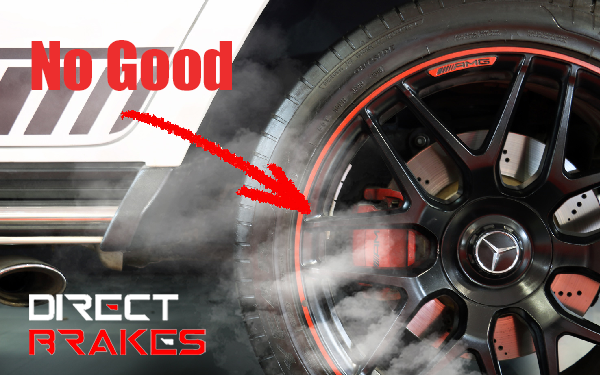Brake Smell Identification Guide
Burnt Organic Material
Causes: New pads breaking in, mountain descent
Duration: Should fade within 15 minutes
Safe to continue driving
Chemical/Fishy Odor
Causes: Brake fluid leak, contaminated fluid
Test: Check reservoir level immediately
Service within 24 hours
Metallic Burning
Causes: Pad material gone, metal-on-metal
Emergency Signs: Smoke, red-hot rotors
STOP DRIVING IMMEDIATELY
The Hidden Temperatures You Can't See
300-400°F
Normal Operating Range
Pads work optimally
600-800°F
Glazing Territory
Pads harden, stopping power drops 40%
1,000°F+
Failure Imminent
Fluid boils, seals melt, fires possible
Pro Tip: Spray water on your rotor (when cool) - if it sizzles, you exceeded 600°F
Emergency Steps for Overheated Brakes
1
Pull Over Safely
Choose level ground away from traffic
Don't park on dry grass
2
Don't Touch Wheels
Rotor temps can exceed 1,200°F - will instantly burn skin
3
Let Cool Naturally
At least 30 minutes before attempting to drive
No water - thermal shock cracks rotors
Brakes Should Smell Like Nothing
Any persistent burning odor means hidden damage is occurring
We do vehicle inspection on very jobs
